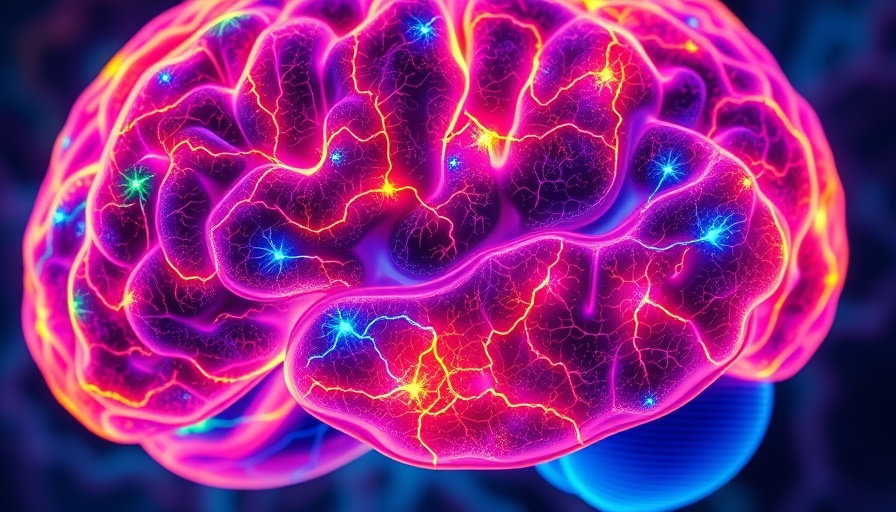
Understanding Synaptic Plasticity: The Key to Learning
The human brain possesses a remarkable ability to adapt and learn, which is largely due to a phenomenon known as synaptic plasticity. This process involves changes in the strength of synapses—tiny connections between neurons that allow them to communicate. Recent research highlights the complex nature of this adaptability and illustrates the layers of biological mechanisms involved during learning.
The Breakthrough: DELTA Imaging Technology
A groundbreaking imaging technique called DELTA has been developed by researchers at the Janelia Research Campus. This method allows for unprecedented visibility of synaptic changes throughout the brain, particularly where these changes occur during the learning process. By pinpointing where synaptic proteins change over time, scientists can better understand the molecular mechanisms of learning and memory.
Why This Matters: Implications for Health and Wellness
Understanding how synaptic plasticity works is not merely of academic interest. The insights from these neuronal mappings can lead to advancements in promoting health and wellness. As we learn more about the brain's ability to adapt, there may be potential applications in fostering better mental health, cognitive rehabilitation, and therapeutic strategies aimed at treating neurological disorders.
The Broader Impact on Community Health and Wellness
Incorporating findings from neuroscience into community health and wellness initiatives can have profound benefits. Programs designed to enhance cognitive function could emerge, reflecting what we learn about plasticity and optimal brain health. For instance, lifestyle medicine approaches—such as mindfulness, healthy nutrition, and exercise—can support cognitive resilience by encouraging environments that facilitate synaptic health.
Future Horizons: Expanding the Scope of DELTA
As technology evolves, the future implementation of DELTA could pave the way for novel applications in various fields, including education and psychology. Educators can leverage insights from current brain imaging techniques to develop tailored learning experiences that exploit the brain's natural adaptability, thus fostering environments conducive to optimal learning outcomes.
Selecting the Right Strategies: Practical Tips for Health and Wellness
For individuals keen on utilizing insights from neuroscience in their daily lives, embracing lifestyle strategies can enhance overall cognitive function. Practices such as regular physical activity, balanced nutrition that includes omega-3 fatty acids for brain health, and engaging in mentally stimulating activities are all supported by research in synaptic plasticity.
Common Misconceptions about Learning and Memory
A prevalent misconception is that intelligence and memory cannot change over time. Contrary to this belief, recent findings underscore how experiences—particularly positive learning opportunities—can forge new synaptic connections and strengthen existing ones. Recognizing this can be empowering, as it highlights the brain's remarkable ability to grow and adapt.
Inspiring Quotes: The Journey of Learning
A quote from Socrates encapsulates the essence of learning: "Education is the kindling of a flame, not the filling of a vessel." This perspective is bolstered by modern neuroscience, affirming that learning is a dynamic process enriched by our capacity to change.
In conclusion, innovations like the DELTA imaging technique not only deepen our understanding of the brain but also open new avenues for enhancing health and wellness. As we reflect on the research, it's clear that an awareness of how our brains work can empower individual and community health initiatives.
If you are interested in advancing your understanding of health and wellness, consider exploring more about the implications of synaptic changes on cognitive health. Engage with community health programs focused on cognitive resilience and take actionable steps towards enhancing your well-being today!
 Add Row
Add Row  Add
Add 




 Add Row
Add Row  Add
Add 


Write A Comment